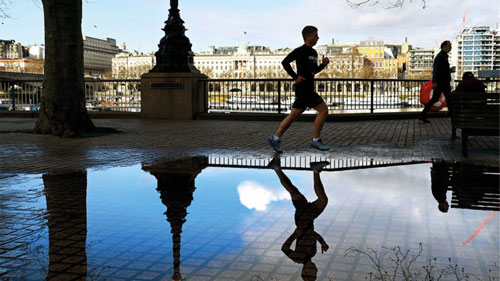A new study highlights the importance of being active and spending time outdoors, even during a pandemic.
The researchers found that people who exercised more during lockdowns experienced less anxiety and depression than those who did not exercise.
They also found that people who spent more time outdoors had lower levels of anxiety and depression than those who stayed inside.
Although stopping viral transmission remains key, such research could help governments reconsider some mitigation measures to lessen their negative effects on mental health.
The extent of COVID-19 lockdowns, curfews, and pandemic mitigation measures varied among countries throughout 2020 and 2021.
During the initial lockdown in March 2020, the United Kingdom, for example, allowed only one exercise session — for instance, going for a walk, run, or bike ride — a day.
Turkey, meanwhile, did not make exceptions for outdoor exercise and only permitted people to leave their homes to shop for basic necessities. Many states in the United States took a different approach and put no caps on time spent outdoors.
The researchers behind a new study, which appears in the journal Preventive Medicine, aimed to look back on the effects such differences may have had on individuals in terms of mental health, especially during the first wave of the pandemic when the authorities imposed lockdowns.
They found that physical activity and time spent outdoors during the pandemic were associated with better mental health.
Measuring anxiety and depression during lockdown The healthcare company Kaiser Permanente (KP) led the study, which involved people from Hawaii, Colorado, Georgia, the mid-Atlantic states, and Southern and Northern California.
The researchers surveyed more than 20,000 people in April 2020 and at least three more times until July 2020.
The participants, all of whom were enrolled in a KP plan, answered questions about their lifestyle, shared their electronic health records, and gave biospecimens.









